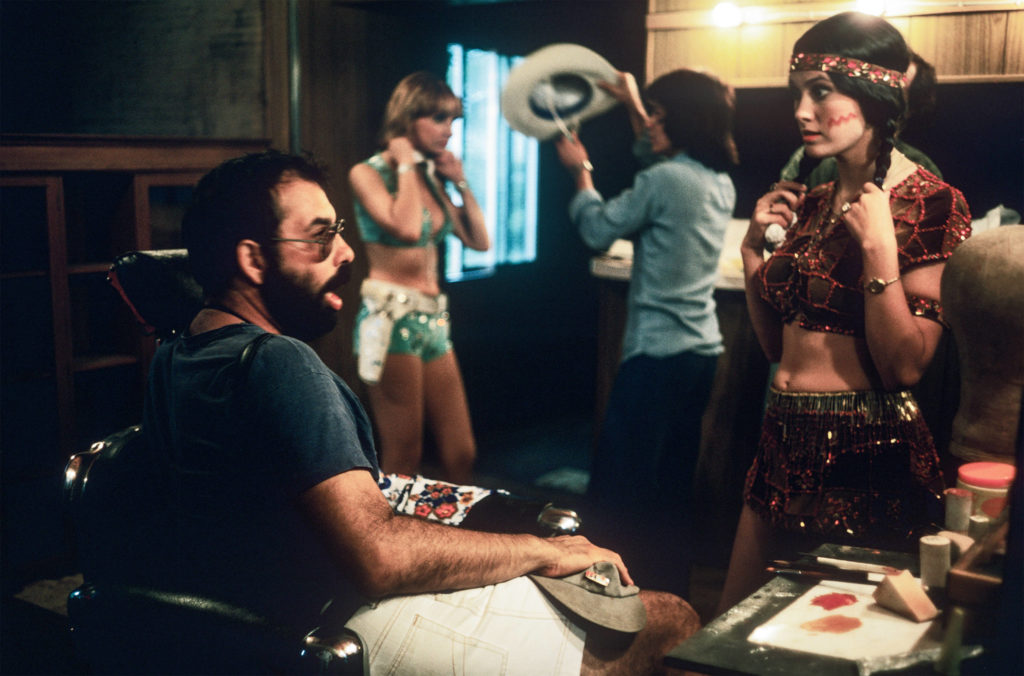
In the early seventies, John Milius adapted Joseph Conrad’s Heart Of Darkness into the screenplay that would famously be made into Apocalypse Now (1979). Twelve years after the theatrical release of Apocalypse Now, Fax Bahr and George Hickenlooper released their documentary of the film’s troubled production titled Hearts Of Darkness. A majority of the footage and audio of this documentary was culled from Eleanor Coppola’s private material, in which her husband, director Francis Ford Coppola, speaks candidly and vulnerably about the film.
Just as Apocalypse Now re-writes the history of the Vietnam War to better suit its narrative and the concerns of Milius and Coppola, Hearts Of Darkness re-writes, or better yet manufactures, a subjective portrait of Francis Coppola. The author of this subjectivity remains unclear, but the important thing is that such subjectivity has been applied, and manipulated to gloss over the even more extravagant pitfalls of Coppola. If one were to read Werner Herzog’s memoir Conquest Of The Useless or Peter Biskind’s Easy Riders, Raging Bulls, one would be privy to the issues regarding Coppola to which I elude. In Hearts Of Darkness, Francis Coppola is presented as an insane, yet visionary iconoclast filmmaker, and an artist to be equated with genius. The documentary evades the dominant motivation of its primary subject, which, given these alternative literary materials, appears to be a massive ego. Grant it, Bahr and Hickenlooper allude to Coppola’s egotistical extravagance in their film’s prologue that documents Orson Welles’ attempt at adapting Conrad for the screen. But it is only an elusion, suggesting that Coppola saw himself as the equivalent of Welles in the “movie brat” generation. If one has read Biskind’s finely researched book, one realizes how strongly such beliefs drove Coppola as a filmmaker to achieve what he had by 1979.
The question at hand isn’t so much a concern with motivation, but in presenting an objective representation of the filmmaker as he struggled with the production of what many consider to be his finest film. The veiling of these truths seems more typical of the wishy washy special features on a Lord Of The Rings DVD than of a serious documentary film. The effect this “white wash” has on its audience by the film’s conclusion can only be described as suspicious at best. Suspicious of how much of the truth has been divulged, and what has been kept back. Obviously Francis Coppola isn’t going to discuss his ego in a film, but others could (Dennis Hopper is certainly a candidate) and did not. So the question is refined; what does Coppola dictate in so far as the film’s content is concerned?
Coppola always seems to be reinventing himself in the past from the comfort of the present, as if always striving to be in vogue. And I suspect that Hearts Of Darkness is operating based on Coppola’s famous M.O. But I do not wish to detract from Hearts Of Darkness’ability to entertain and inform its audience. It is rich with facts and little tid-bits of interest to any cinephile.
Perhaps Coppola’s interests in his own self-image derive from the difficulties following One From The Heart, or the criticism his work in the eighties and nineties elicited. Regardless, the portrait of Coppola the filmmaker in Hearts Of Darkness seems more informative of who Coppola was in 1991 than in 1979.
